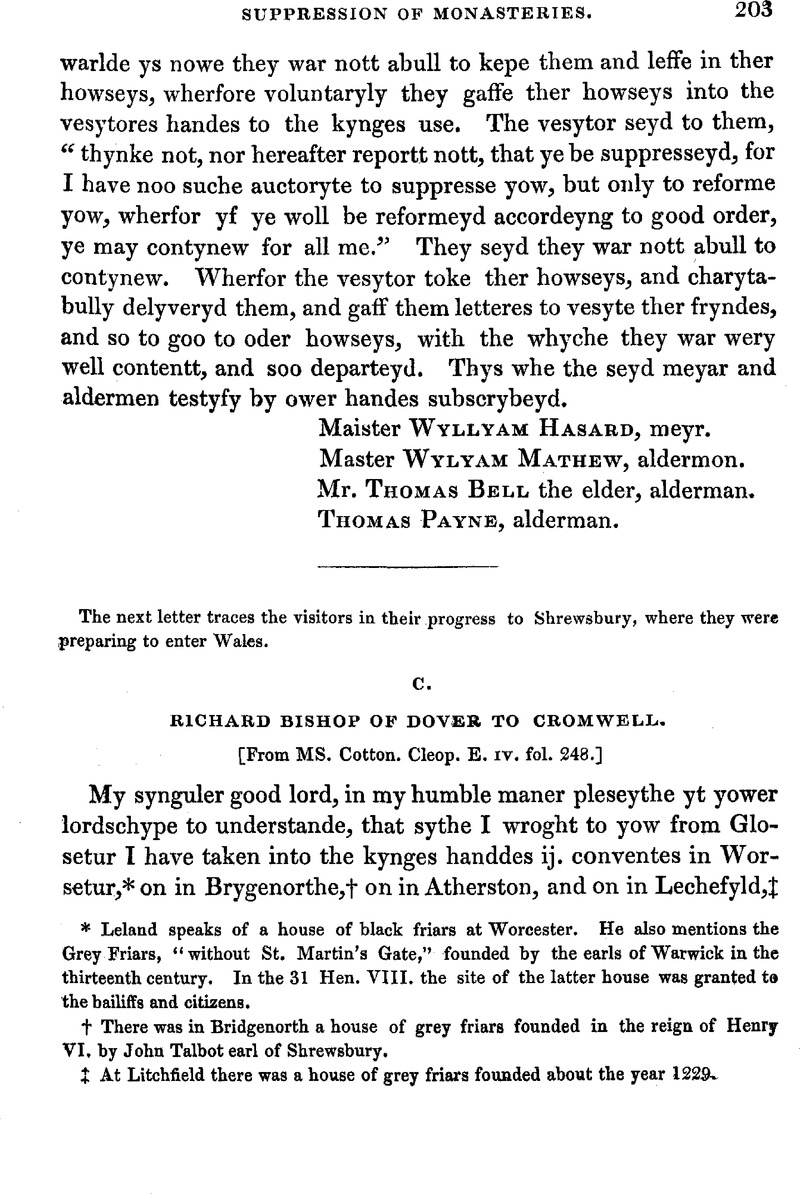No CrossRef data available.
Published online by Cambridge University Press: 23 February 2010

page 203 note * Leland speaks of a house of black friars at Worcester. He also mentions the Grey Friars, “without St. Martin's Gate,” founded by the earls of Warwick in the thirteenth century. In the 31 Hen. VIII. the site of the latter house was granted to the bailiffs and citizens.
page 203 note † There was in Bridgenorth a house of grey friars founded in the reign of Henry VI, by John Talbot earl of Shrewsbury.
page 203 note ‡ At Litchfield there was a house of grey friars founded about the year 1229.
page 204 note * A house of grey or Franciscan friars existed at Stafford early in the reign of Edward I. There was also a house of Austin friars, founded ahout 1344, in the south suburb called Forbrugge.
page 204 note † Leland, speaking of Newcastle-under-Line, says “there was an house of black friars in the south end of the town.”
page 204 note ‡ The Black Friars in Shrewsbury appears to have been founded about the sixth year of the reign of Henry III.
page 205 note * The Grey Friars in Shrewsbury was standing in the earliest half of the thirteenth century, but its history is rery obscure. It was the burial place of the lady Hawisia wife of John de Charlton first earl of Powis, and he, having probably been a benefactor, came at a later period to be looked on as the founder.
page 205 note † Leland says that the Austin Friars in Shrewsbury was a foundation “of the Staffordes.”
page 205 note ‡ Frenzy.
page 205 note § Irish.